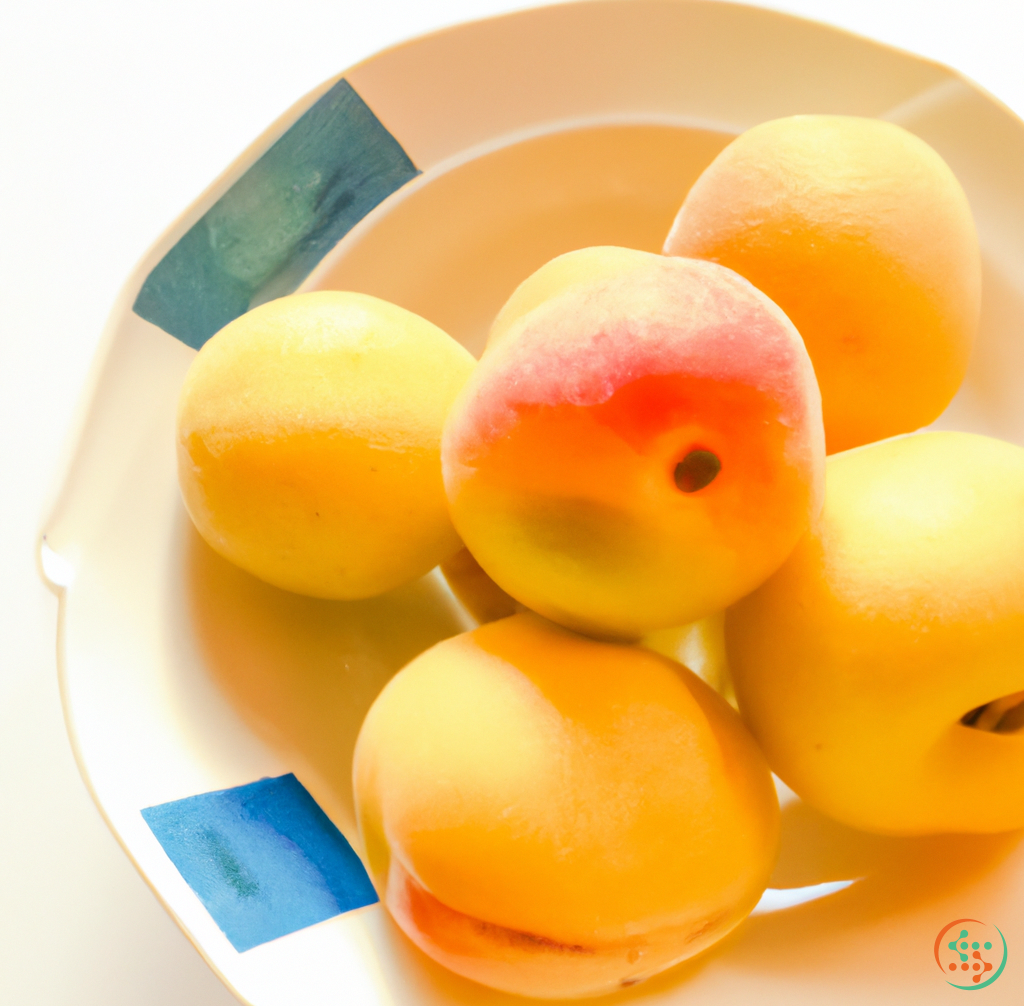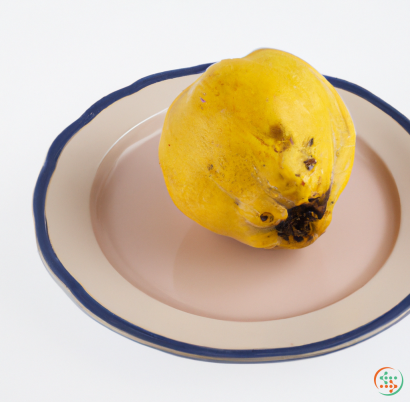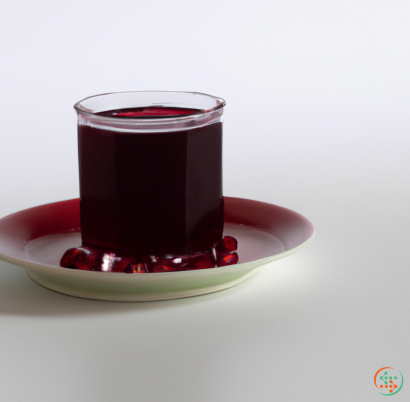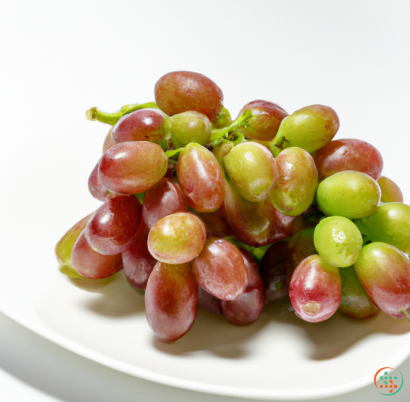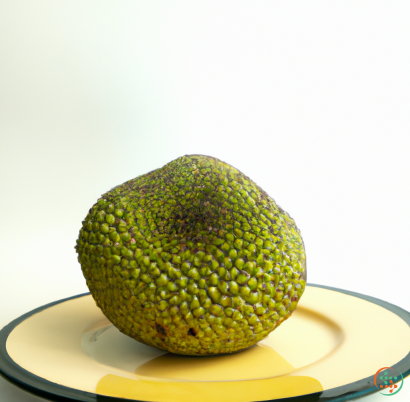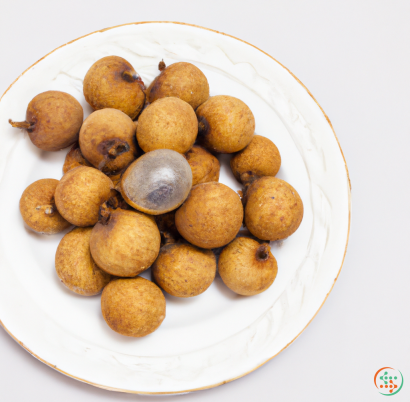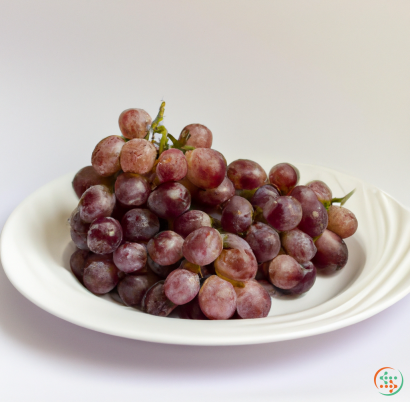Apricots
Apricots: Sweet, Juicy and Dried Fruit Worth Enjoying
Did you know apricots are a type of stone fruit? Apricots are among the tastiest fruits and are native to Armenia and enjoy worldwide popularity. During the summer months, when apricots are in peak season, they’re ripe, juicy, and sweet. You’ll enjoy apricots in many forms and varieties, from fresh to dried, canned, and even made into jams, chutneys, and other tasty treats.
What are apricots and what is their history? Apricots are a type of stone fruit with large, round middles. To be exact, apricots are a member of the prunus genus, which includes almond, peach, and plum climates. Its scientific name is Prunus armeniaca and they are related to peaches, but with a much drier flesh. Apricots date back to ancient times; when merchants brought them from China and Armenia to Europe, apricots were recognized for their distinctive taste, texture, and vibrant orange hue.
Fresh apricots are generally available from May through August, although you’ll find more widely available dried apricot varieties year-round. While apricots grow in most climates, California, Arizona, Oregon, and Washington State are all popular locations due to ideal growing conditions. Apricots come in multiple colors, ranging from bright and juicy yellow-orange to tannish green-yellow. Apricots have a subtle, sweet aroma, with a slightly tart flavor; they also boast many health benefits, thanks to an abundance of essential vitamins and minerals.
When choosing fresh apricots, look for vibrant colors; healthy skin free of bruises, soft spots, and discoloration; and the signature apricot aroma. Make sure the apricots you purchase are lightly firm to the touch. If you’re looking for a sweeter version, opt for the yellow-orange variety. Avoid choosing too-ripe apricots, as this can indicate the flesh is soft, or too much moisture has been lost.
When it comes to nutrition, apricots are an impressive bunch. A single apricot contains approximately 20 calories, no fat, 1.5 grams of fiber, and are packed with essential vitamins, including vitamin A, vitamin C, calcium, iron, and potassium. As a bonus, apricots are low in basic sugars and moderately high in natural fructose and glucose. This makes them a healthier alternative to their sugary counterparts. Apricots are especially rich in carotenoids, a type of antioxidant known for promoting better eyesight and regulating our body’s normal function.
When it comes to cooking, apricots are incredibly versatile. From savory dishes like apricot glazed pork to sweet desserts, apricots can make almost any dish delicious. Apricots are especially delicious when used in jams, jellies, and cakes. They are also a great addition to salads, tarts, and terrines. Baked goods made with apricots typically heat up quickly, allowing them to become soft and even sweeter. Apricots freeze well and can last up to 12 months when frozen.
Dried apricots are also an excellent choice for adding a sweet and chewy texture to your dishes. Drying apricots preserve them for a longer shelf life compared to fresh apricots. Dried apricots are also a great source of dietary fiber and iron, similar to their fresh counterparts.
Apricots are an excellent resource for improving your overall health. Their abundant vitamin content makes them an essential part of your daily diet. Plus, they are incredibly delicious when enjoyed fresh, dried, or even in jam form. No matter how you choose to enjoy apricots, you are sure to reap all the nutrition and flavor benefits that apricots have to offer.
Apricots are one of the most beloved fruits around the world, yet many people don’t understand the complexity involved in making them ready to eat. It takes hundreds of hours and dozens of steps to take an unripe apricot from the orchard to a dinner plate. Here, we invite you to explore the journey that apricots undergo as they make their way from the farm to the consumer with insights into the different stages of the process.
The Science of Growing Apricots
Growing apricots is somewhat of an art. Apricots are a stone fruit, which are borne on a woody tree and have a single seed inside. The trees like sandy soil and must be planted in full sun, so they need at least six hours of direct sunlight each day. They are deep rooted, meaning it is not recommended to dig them up and move them once they are established.
Apricot farmers must carefully manage irrigation, pruning, and choosing the right pollinators while they wait for their trees to mature. It can take between three and seven years before the trees are ready to bear a commercial crop of apricots.
Apricot trees begin to bloom in late winter, several months before their apricots are ready to harvest. The flowers remain on the tree for approximately three weeks, and in order for pollination to occur successfully, roughly 55% of the flowers must be pollinated.
Bees are the most common and important pollinators for apricots. The bees will collect nectar from the flowers and pollinate them as they move from one flower to another. This allows the ovulums in the flower to become fertilized in a process known as fertilization.
After fertilization, the apricots must be nurtured over several months until they reach the desired size and sweetness. Both the environment and methods of irrigation affect the quality and size of the apricots and determine how successful the crop will be.
The Science of Harvesting Apricots
Harvesting apricots is a difficult process, as the fruit must be handpicked in order to maintain their delicate nature. Fruit that is damaged prior to harvest is considered unripe and therefore not suitable for consumption.
Apricots are handpicked and collected into baskets, then immediately taken to a packing house for sorting. The fruit is graded for color, size, ripeness, and quality. The grade determines the price the farmer receives for the apricots and plays a major role in determining which type of apricot will end up on a dinner plate.
Once the apricots are sorted and graded, they are placed in packed containers and stored in temperature-controlled warehouses at the peak of their ripeness. If the apricots are not picked at just the right time, not only will their brief window of prime ripeness pass, but they could be subject to disease, rot, or other types of damage.
The Science of Transporting Apricots
Transporting apricots requires careful coordination and an understanding of proper storage temperatures. Apricots are among the most delicate fruits and must be handled with care. If they are subjected to too much heat, the fruit inside can spoil, making it inedible.
Transportation of apricots begins with pre-cooling, which typically takes place in a temperature-controlled warehouse. The apricots are placed in perforated crates, which allow cold air to breech the interior and keep the apricots at a consistent temperature.
After pre-cooling, the apricots are transported to their destination by either truck, rail, or air. The transportation method is typically determined by the distance between farms and consumers. For example, long-distance transportation usually involves air transportation, which is the most expensive form of transportation.
The Science of Processing Apricots
After the apricots arrive at their destination, they must be peeled and then prepared to meet the needs of the consumer. Depending on the intended end-use of the apricot, the processing might include slicing, puréeing, and/or canning.
If the apricots are sliced or diced, the pieces have to undergo various sanitation processes to ensure the pieces do not contain any harmful microorganisms. Then, the pieces are typically treated with a neutralizer, which protects them from discoloration, and a preservative, which prevents spoilage.
If the apricots are puréed or canned, they first have to undergo heat treatment. This is called “thermization” and helps to sterilize the fruits as well as extend their shelf life.
The Science of Packaging Apricots
Apricots that are intended for consumer sale must be packaged in a container that provides an ample amount of protection against outside elements. This can be done by using amber-colored plastic containers which are specifically designed to protect the apricots from water and air.
After packaging, the apricots are tested for quality and freshness. Once the apricots have passed the quality test, the containers are labeled and sent out for distribution.
The Science of Eating Apricots
When it comes to eating apricots, the journey from the farm to the consumer can only do so much. The experience all comes down to the individual’s decision on how ripe to allow the apricot to become before consumption.
Apricots can be eaten at various ripeness levels. Unripe apricots offer a crisp, almost apple-like texture, while fully-ripe apricots have a soft texture and a much sweeter flavor.
Apricots can also be eaten when they are semi-ripe. Semi-ripe apricots offer a unique texture, as they are neither too soft nor too crisp. For a traditional apricot experience, however, it is best to wait until the fruit is fully ripe before consuming it.
Conclusion
The journey of the apricot from the farm to the plate is filled with complexities. So the next time you bite into a juicy and sweet apricot, remember to thank the hardworking farmers and the science that goes into producing this beloved and nutritious fruit.
| Vitamin A | 0.096 mg | |
| Beta-Carotene | 0.001094 grams | |
| Alpha-Carotene | 0.019 mg | |
| Vitamin E | 0.89 mg | |
| Vitamin K | 0.0033 mg | |
| Vitamin C | 0.01 grams | |
| Vitamin B1 | 0.03 mg | |
| Vitamin B2 | 0.04 mg | |
| Vitamin B3 | 0.6 mg | |
| Vitamin B4 | 0.0028 grams | |
| Vitamin B5 | 0.24 mg | |
| Vitamin B6 | 0.05 mg | |
| Vitamin B9 | 0.009 mg |
| Calcium | 0.013 grams |
Daily Value 1.3 g
|
| Iron | 0.39 mg |
Daily Value 0.018 g
|
| Magnesium | 0.01 grams |
Daily Value 0.4 g
|
| Phosphorus | 0.023 grams |
Daily Value 1.25 g
|
| Potassium | 0.259 grams |
Daily Value 4.7 g
|
| Sodium | 0.001 grams |
Daily Value 2.3 g
|
| Zinc | 0.2 mg |
Daily Value 0.011 g
|
| Copper | 0.08 mg |
Daily Value 0.9 mg
|
| Manganese | 0.08 mg |
Daily Value 0.0023 g
|
| Selenium | 0.1 ug |
Daily Value 0.055 mg
|
| Tryptophan | 0.015 grams | |
| Threonine | 0.047 grams | |
| Isoleucine | 0.041 grams | |
| Leucine | 0.077 grams | |
| Lysine | 0.097 grams | |
| Methionine | 0.006 grams | |
| Cystine | 0.003 grams | |
| Phenylalanine | 0.052 grams | |
| Tyrosine | 0.029 grams | |
| Valine | 0.047 grams | |
| Arginine | 0.045 grams | |
| Histidine | 0.027 grams | |
| Alanine | 0.068 grams | |
| Aspartic Acid | 0.314 grams | |
| Glutamic Acid | 0.157 grams | |
| Glycine | 0.04 grams | |
| Proline | 0.101 grams | |
| Serine | 0.083 grams |
| Glucose | 2.37 grams |
|
| Fructose | 0.94 grams |
|
| Sucrose | 5.87 grams |
|
| Maltose | 0.06 grams |
|
| Total Sugars | 0.131141 grams |
per 100g
|
| Palmitic acid (16:0) | 0.02 grams |
|
| Total Saturated fatty acids: | 0.02 g | |
| Oleic acid (18:1) | 0.17 grams |
|
| Total Monounsaturated fatty acids: | 0.17 g | |
| Linoleic acid (18:2) | 0.08 grams |
|
| Total Polyunsaturated fatty acids: | 0.08 g | |
| Phytosterols | 0.02 grams |
|
| Total Sterols: | 0.02 g | |
